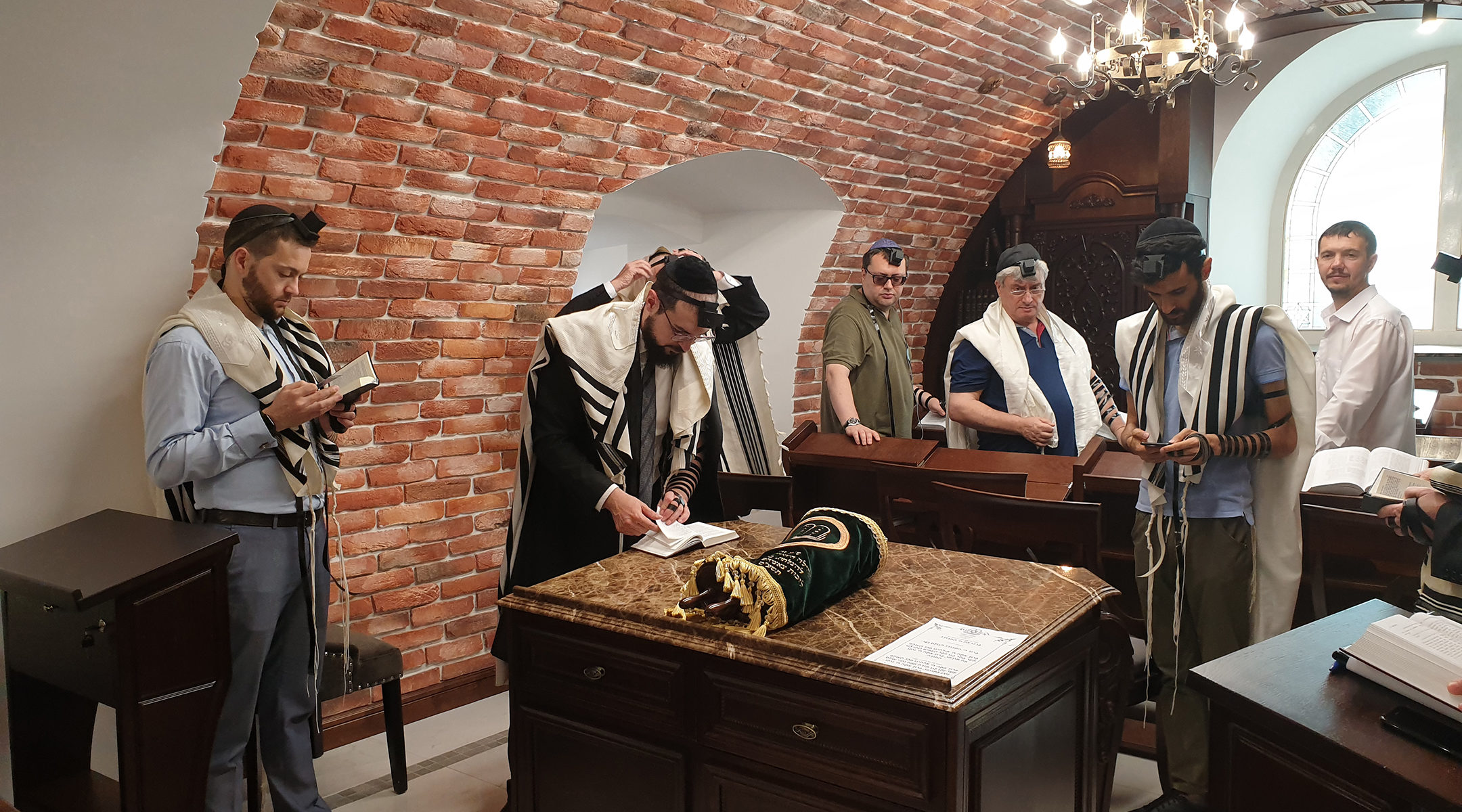CHISINAU, Moldova (JTA) — Jews in this city reopened a synagogue in its former home, a building seized by Soviet authorities nearly 80 years ago.
The Wooden Synagogue, or the Lemnaria Synagogue, was reopened Sunday in the cellar of the Kedem Jewish Community Center. About 300 people attended the ceremony under the auspices of the Limmud FSU biannual conference of Jewish learning in the center of Chisinau, also known as Kishinev.
The original synagogue was established in 1835 and nationalized in 1940. In 2005, the American Jewish Joint Distribution Committee opened the JCC in the building that once housed the synagogue. But the building did not have a synagogue until Alexandar Bilinkis, president of Jewish Community of the Republic of Moldova, donated the funds along with Alexander Weinstein and Grinshpun Emmanuil.
The local Jewish community is dwindling due to emigration and assimilation. Moldova has about 19,000 people with a Jewish grandparent and 3,000 citizens who are Jewish according to Orthodox law, or halacha.
With the Wooden Synagogue’s reopening, the community now has four synagogues. It had more than 80 before the Holocaust, according to the rabbi of the Moldova Jewish community and the Wooden Synagogue.
“Exactly because of the factors weakening the community, it’s especially important that institutions like the Wooden Synagogue be built,” said Chaim Chesler, co-founder of Limmud FSU.
Moldova, a landlocked country of about 3 million people, is sandwiched between Romania and Ukraine. It is widely believed to be Europe’s poorest nation, with a median monthly income under $340.
JTA has documented Jewish history in real-time for over a century. Keep our journalism strong by joining us in supporting independent, award-winning reporting.






